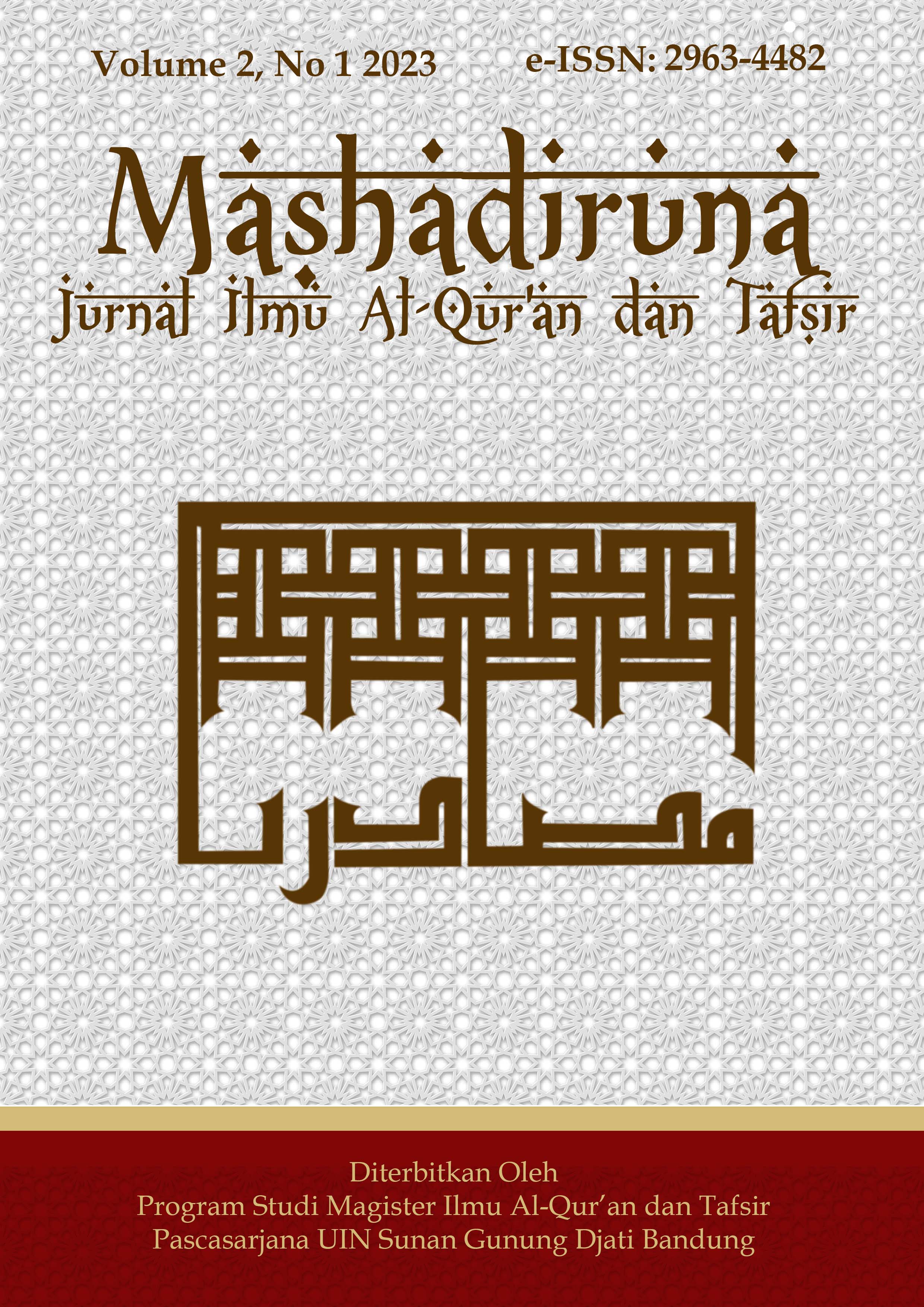An Analysis of Faqihudin's Interpretation of the Houri Verses in the Quran
DOI:
https://doi.org/10.15575/mjiat.v2i2.25323Keywords:
Heavenly Maidens, Tafsir, Faqihudin's Interpretation.Abstract
This research examines the interpretations of the verses about heavenly maidens, comparing the perspectives of traditional Islamic scholars with those of feminist interpreters. The objective of this study is to understand the feminist interpreters' perspectives on the verses concerning heavenly maidens in the Quran. This is a qualitative research study that utilizes data from various library sources to provide an analytical description of the verses related to heavenly maidens. Primary sources such as classical Quranic exegesis texts and related works are used as secondary sources. The results of this study reveal several concepts of heavenly maidens in the Quran, with a focus on two specific terms. The first term relates to the phrase “azwaju muthahharoh,†mentioned in the Quran to signify spouses for the righteous in paradise. The second term is related to “Hur al-‘in,†describing the heavenly maidens' physical attributes. These two terms are the primary focus of discussion in this paper because classical Islamic scholars and feminist interpreters offer differing interpretations, leading to varying conclusions regarding the meaning of heavenly maidens. Therefore, through this scholarly paper, we will analyze the feminist interpretation of the Houri verses according to Faqihudin Abdul Kodir.
References
Al-Baghawi, A. M. H. bin mas’ud. (1997). Ma’alim at-Tanzil. Dar at-Tayyibah li an-Nasyr wa at-Tauzi.
Al-Maraghi, A. M. (2015). Tafsir Al-Maraghi juz 10. Beirut: Dar Kutub Al-’Ilmiah.
Al-Suyuthi, J. ’Abd al-R., & Al-Mahally, J. (n.d.). Tafsir al-Jalalain. Kairo: Daar al-Hadits.
Amin, B. (2019). FEMINISME DAN GERAKAN SOSIAL†Al-wardah: Jurnal Kajian Perempuan. Gender Dan Agama, 13(1).
Amir, M. (2017). Bidadari dalam Al-Qur’an Perspektif Mufassir Indonesia. UIN Syarif Hidayatullah Jakarta.
Ath-Thabari, A. J. M. bin J. (2010). Jami’ al bayan ’an ta’wili ayyi Al-Quran Tafsir Ath-Thabari juz 7. Qahirah: Dar al-Hadits.
Baidan, N. (2005). Metodologi Penafsiran Al-Qur’an. Yogyakarta: Pustaka Belajar.
Faris, I., & Ahmad, A. al-H. (1979). Mu’jam Maqayis al-Lughah. Bairut: Dar Al-Fikr, 1423.
Hasanah, H. (2021). Bidadara Surga: Tafsir Makna Kata Zauj Persepektif Qiraah Mubadalah.
Kodir, F. A. (2019). Kemitraan Perempuan dan Laki-Laki.
Kodir, F. A. (2021). Qira’ah mubadalah. IRCiSoD.
Mernissi, F. (1982). Virginity and patriarchy. Women’s Studies International Forum, 5(2), 183–191. Elsevier.
Pambudi, U. L. (2021). RELEVANSI PEMIKIRAN FAQIHUDDIN ABDUL KODIR DAN SITI MUSDAH MULIA TENTANG POLIGAMI BAGI PEMBAHARUAN KETENTUAN POLIGAMI DI INDONESIA.
Rozin, M. (2020). Bidadari Dalam Tafsir Alquran: Komparasi Pemikiran Ibn ‘ Âsyûr Dan Amina Wadud. Dirosat: Jurnal of Islamic Studies, 5(2).
Saidah, N. (2013). Bidadari Dalam Konstruksi Tafsir Al-Qur’an: Analisis Gender Atas Pemikiran Amina Wadud Muhsin Dalam Penafsiran Al-Qur’an. PALASTREN Jurnal Studi Gender, 6(2), 441–472.
Sibawaihi. (2004). Eskatologi Al-Ghazali Dan Fazlur Rahman: Studi Komparatif Epistimologi Klasik-Kontemporer. Yogyakarta: Penerbit Islamika.
Sugiyono. (2012). Metode Penelitian Kuantitatif Kualitatif dan R&D. Bandug: Alfabeta.
Taufiq, W. (2016). Semiotika untuk Kajian Sastra dan al- Qur’an. Bandung: Yrama Widya.
Wadud, A. (1999). Qur’an and Woman. New York: Oxford University Pers.
Yunus, B. M., & Zulaiha, E. (2020). Kategorisasi Ilmu Tafsir (Bahan Ajar). Bandung: Prodi S2 Ilmu Al-Quran dan tafsir.
Zulaiha, E., & Mutaqin, A. Z. (2021). The Problems of The Marriage Age Changing in Indonesia in the Perspectives of Muslim Jurists and Gender Equality. Hanifiya: Jurnal Studi Agama-Agama, 4(2), 18–99.
Downloads
Published
Issue
Section
License
Authors who publish with this journal agree to the following terms:
- Authors retain copyright and grant the journal right of first publication with the work simultaneously licensed under a Creative Commons Attribution License that allows others to share the work with an acknowledgment of the work's authorship and initial publication in this journal.
- Authors are able to enter into separate, additional contractual arrangements for the non-exclusive distribution of the journal's published version of the work (e.g., post it to an institutional repository or publish it in a book), with an acknowledgment of its initial publication in this journal.
- Authors are permitted and encouraged to post their work online (e.g., in institutional repositories or on their website) prior to and during the submission process, as it can lead to productive exchanges, as well as earlier and greater citation of published work (See The Effect of Open Access).
